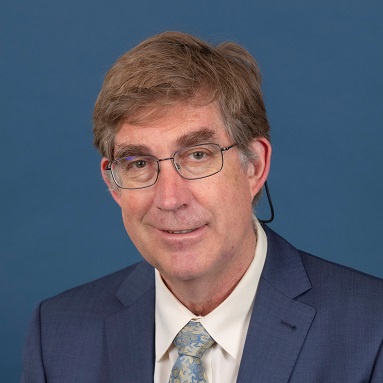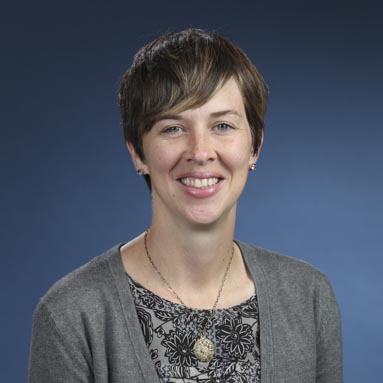Project Team

Seth Tuler (PI) is an Associate Professor in the Department of Integrative and Global Studies Division, Worcester Polytechnic Institute, MA. Seth’s research interests concern public participation, risk governance, and developing tools to characterize human impacts and vulnerabilities to risk events. His work on climate change adaptation has built on this work, by developing methods to support learning and inform decision makers in several NOAA funded projects. He was a co-creator of the Vulnerability, Consequences, and Adaptation Planning Scenarios (VCAPS) Process (www.vcapsforplanning.org). He seeks to apply insights emerging from research to practical applications in a wide range of policy arenas, including climate change adaptation planning, nuclear waste management, renewable energy facility siting, and clean-up of contaminated sites.

Carrick Eggleston is Professor and Head in Civil, Environmental, and Architectural Engineering at Worcester Polytechnic Institute. His research interests have centered on environmental chemistry and the interaction of geomaterials with fluids and organisms in environmental transformations, from crystal growth/dissolution to interfacial electron transfer and photoelectrochmical processes. He has worked on carbon capture and storage, solar fuels and energy materials, and more recently, on climate change, renewable energy systems, and energy transition. He holds a Ph.D. from Stanford University in Applied Earth Sciences

Oleg Pavlov is an Associate Professor of Economics and System Dynamics at Worcester Polytechnic Institute. He uses simulations and systems tools to study causal feedback effects in complex social and economic systems. He was a visiting scholar at the Federal Reserve Bank and held visiting faculty positions in Finland, China, Russia, and the UK. Pavlov serves on the editorial boards of the System Dynamics Review, The Entrepreneurship Research Journal, Review of Business and Economics Studies, and Systems. He holds an MBA from Cornell University and a PhD and MA in Economics and a BS in Physics and Computer Science from the University of Southern California.

Stephen McCauley is Associate Professor of Teaching in the Department of Integrative and Global Studies at Worcester Polytechnic Institute. He co-directs WPI’s Melbourne, Australia project center, where he coordinates action-research projects with civic organizations to address issues at the interface of technology, society and the environment. He has also co-directed WPI’s Global Lab, a collaborative that works to elevate the impacts of action-research collaborations through creative scholarship, storytelling, and research coordination. A geographer with broad substantive interests in climate change preparedness, urban resilience, energy system innovation, community participation in environmental decision-making, citizen science, and GI Science for urban planning, his current work addresses urban heat island dynamics and green infrastructure and other planning interventions that can mitigate the vulnerabilities associated with extreme heat in cities.

Elisabeth Stoddard

Sarah Strauss is Professor of Anthropology and Co-director of the MS program in Community Climate Adaptation at the Global School at Worcester Polytechnic Institute. She has been visiting faculty at NCAR (US National Center for Atmospheric Research), University of Fribourg (CH), and Pondicherry University (IN), and served on the Global Climate Change Task Force of the American Anthropological Association. Strauss conducts research at the intersection of environmental and health values and practices, especially those related to water, climate change, and energy transitions. Her books include Weather, Climate, Culture (2003, edited with Ben Orlove) and Cultures of Energy (2013, edited with Stephanie Rupp and Thomas Love).
Stakeholder Working Group
We have established a Stakeholder Working Group to provide advice and support while sharing expertise, experiences, and insights for project activities that will support integrated land use planning and management that will, in turn, promote sustainability and resilience in both rural and urban communities in the Commonwealth.
Members of the Stakeholder Working Group are helping to:
- identify groups and individuals within the Commonwealth to include in project activities.
- design and participate in activities (e.g., meetings, forums) to explore how specific land-use related policies and programs lead to trade-offs, co-benefits, and risks associated with, for example, health, equity and racial justice, climate resilience, functional and resilient ecosystems, food security, and economic security and vitality.
- design and participate in participatory modeling efforts that explore scenarios related to land use policies and programs.
- identify projects, outreach activities, structure, procedures, etc. for subsequent grant proposals and activities.
Members of the Stakeholder Working Group are:
- David Bloniarz, USDA Forest Service Northern Research Station; UMass. Dept of Environmental Conservation; ReGreen Springfield
- Bianca Bowman, Green Roots (Chelsea, MA)
- Dwayne Breger, UMass Clean Energy Extension
- Stefanie Covino, Blackstone Watershed Collaborative
- Robert O’Connor, formerly MA EEA (retired)
- Bill Labich, Highstead Foundation; Coordinator, Regional Conservation Partnership (RCP) Network; Coordinator, Northeast Forest Network
- Lelsy Melendez, Groundworks Lawrence
- Elecia Miller, City of Lawrence
- Kimberly Noake McPhee, Franklin Regional Council of Governments (FRCOG)
- Liz O’Gilvie, Springfield Food Policy Council
- Winton Pitcoff, MA Food System Collaborative
- Catherine Ratte, Pioneer Valley Planning Commission (PVPC)
- Heidi Ricci, MA Audubon
- Rachel Stoler, Communities that Care Coalition (FRCOG)
- Greg Watson, Schumacher Center for New Economics
Consultants and affiliated practitioners and researchers
David Bloniarz, USDA Forest Service Urban Natural Resources Institute, Springfield, MA and Department Of Environmental Conservation, University of Massachusetts, Amherst, MA
Dwayne Breger, Environmental Conservation and Clean Energy Extension, University of Massachusetts, Amherst, MA
Robert O’Connor, formerly Division of Conservation Services, MA Exec. Office of Energy and Environment, Boston, MA
Liz O’Gilvie, Gardening the Community, Springfield, MA and Springfield Food Policy Council, Springfield, MA
Thomas Webler, Social and Environmental Research Institute, Shelburne, MA
